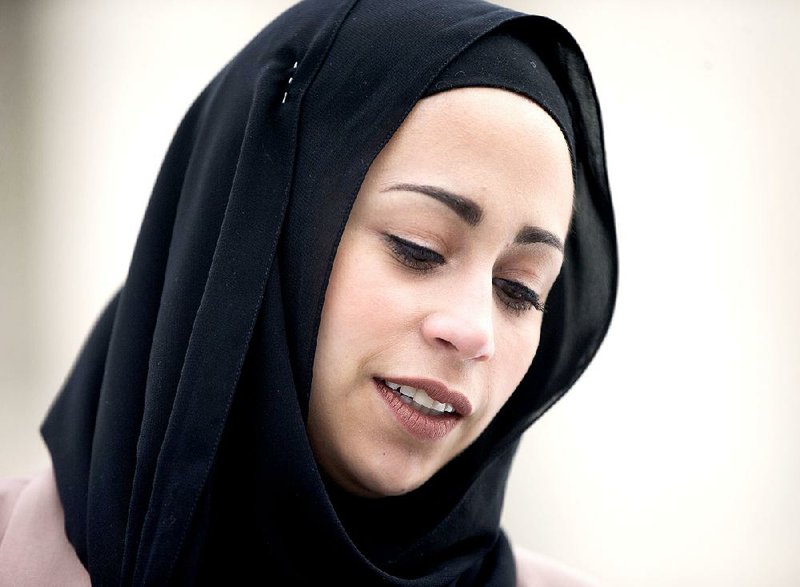WASHINGTON -- The U.S. Supreme Court buttressed speech protections on the Internet, throwing out the conviction of a man who used graphic language on Facebook to suggest he might kill his wife, kindergarten students and an FBI agent.
A lower court had said prosecutors needed to show only that a reasonable person would view Anthony Elonis' statements as a threat. Writing for the court in one of several cases decided Monday, Chief Justice John Roberts said prosecutors need to prove more than that -- at least that Elonis' comments were reckless and perhaps that he meant for his words to be taken as a threat.
"Federal criminal law generally does not turn solely on the results of an act without considering the defendant's mental state," Roberts wrote.
Six justices joined the entirety of Roberts' opinion. Justice Clarence Thomas dissented, voting to uphold Elonis' conviction.
Justice Samuel Alito wrote separately and said he would have set aside the conviction. At the same time, Alito said he would have given prosecutors a new chance to persuade a lower court that Elonis' conduct was so reckless that the conviction should be reinstated.
Alito faulted the majority for not saying whether it would be enough for prosecutors to show that Elonis' conduct was reckless.
Roberts said the court didn't reach that issue because no federal appeals court had considered it first.
The case marks the first time the high court has ruled on the rights of people when they post on social media. It tested how the federal threat statute applies in a world of online communications.
The justices didn't decide whether Elonis' First Amendment rights were violated, instead interpreting the federal threat statute in a way that averted potential constitutional problems.
Elonis, who cites the rapper Eminem as an inspiration, said his posts were therapeutic rap lyrics and weren't intended as threats. One post said, "I'm not gonna rest until your body is a mess, soaked in blood and dying from all the little cuts."
Elonis, now 31, made the posts on his public Facebook page in 2010, after his wife left him and took their two children with her, and after he lost his job at an amusement park in Allentown, Pa. He served more than three years in prison.
Religious rights
Also Monday, the Supreme Court bolstered the religious rights of workers, siding with a Muslim woman who was denied a job at Abercrombie & Fitch Co. because she wore a headscarf.
The majority said businesses can be sued for bias even if they didn't know for sure that an applicant had religious reasons for wearing particular clothes or needing time off. Federal law requires employers to accommodate religious needs when feasible.
"An employer may not make an applicant's religious practice, confirmed or otherwise, a factor in employment decisions," Justice Antonin Scalia wrote for himself and six other justices.
Thomas dissented on the central question and said he would have thrown out the suit. Alito said he agreed that the woman's case could move forward but disagreed with Scalia's reasoning.
The 8-1 ruling will require businesses to take more initiative to avoid discriminating against prospective employees whose religious practices conflict with a workplace rule.
Abercrombie refused to hire Samantha Elauf for a job at a Tulsa store in 2008, in part because the scarf she wore to her interview didn't comply with the company's dress code.
A federal appeals court said that wasn't religious discrimination because Elauf didn't explicitly tell an Abercrombie interviewer that she was wearing the scarf for religious reasons.
The high court's Monday ruling sent the case back to a lower court without specifying what the next steps will be. A jury awarded $20,000, and the U.S. Equal Employment Opportunity Commission, which is suing Abercrombie on Elauf's behalf, will have a chance to seek reinstatement of that award.
Illegal aliens' bail
A divided high court refused to revive an Arizona law that denied bail to illegal aliens who were charged with any of hundreds of felony offenses.
The justices left intact a federal appeals court decision that said the law, approved by Arizona's voters in 2006, was so sweeping that it violated the Constitution.
Three justices -- Thomas, Scalia and Alito -- voted to hear the case, falling one vote short of the required number.
"The court's refusal to hear the case shows insufficient respect to the state of Arizona, its voters and its constitution," Thomas wrote for himself and Scalia.
The law was being defended by Maricopa County and its sheriff, Joseph Arpaio, whose aggressive approach toward illegal immigration has made him a flashpoint for the debate.
The county's appeal pointed to a 1987 Supreme Court decision upholding a federal law that allows the pretrial detention of people charged with serious felonies.
The appeals court faulted the measure because it applied to offenses as minor as altering a lottery ticket and didn't give inmates a chance to show they weren't a flight risk.
A Section on 06/02/2015

